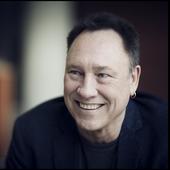
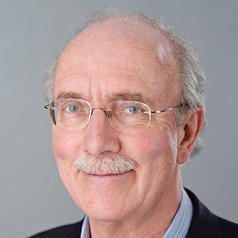
John Shattuck
John Shattuck is a former U.S. secretary of state for democracy, human rights and labor. He has had a distinguished career spanning more than three decades in higher education, international diplomacy, foreign policy and human rights.
Before coming to CEU, he was CEO of the John F. Kennedy Library Foundation, a national public affairs center in Boston, and Senior Fellow at Tufts University, where he taught human rights and international relations. President Shattuck served as Assistant Secretary of State for Democracy, Human Rights and Labor under President Clinton, playing a major role in the establishment by the United Nations of the International Criminal Tribunals for Rwanda and the former Yugoslavia; assisting an international coalition under UN authority to restore a democratically-elected government to Haiti; and negotiating the Dayton Peace Agreement and other efforts to end the war in Bosnia.
Subsequently he served as US Ambassador to the Czech Republic, working with the Czech government to assist in overhauling the country’s legal system, and with Czech educators to support innovative civic education programs in the country’s schools and universities. In recognition of his human rights leadership, he has received the International Human Rights Award from the United Nations Association of Boston; the Ambassador’s Award from the American Bar Association Central and East European Law Initiative; and the Tufts University Jean Mayer Global Citizenship Award.
Prior to his government service, President Shattuck was a Vice-President at Harvard University, taught at the Harvard Law School, and was a Research Associate at the Kennedy School of Government. At Harvard, he was responsible for managing the University’s relations with the federal government, including federal support for research funding and student financial aid. While at Harvard he founded the Cambridge Partnership for Public Education, and worked to expand Harvard’s role in assisting public schools, including the creation of a new program of fellowships for Cambridge and Boston teachers at the Harvard Graduate School of Education. He was also active in expanding Harvard’s public service programs involving students and faculty members. He received the Distinguished Service to Public Education Award in 1990 from the Massachusetts Board of Education, and the Yale Law School Public Service Award in 1988.
Shattuck’s career began at the American Civil Liberties Union, where he served as Executive Director of the Washington Office and National Staff Counsel. He helped enact federal legislation to protect individual privacy and to enforce civil rights in the election process. He also handled a number of prominent civil rights and civil liberties court cases, including the representation of persons who had been targets of illegal surveillance during the Nixon administration. In 1984 he received the Roger Baldwin Award for his national contribution to civil liberties.
Shattuck is the author of three books, including Freedom on Fire, a study of the international response to genocide and crimes against humanity in the 1990s, published by Harvard University Press, and Rights of Privacy, a casebook on US constitutional law and the protection of privacy. He has published more than 50 articles on human rights, civil liberties, international relations, public service and higher education. In 2007 he was elected to the American Academy of Arts and Sciences, and he has received honorary degrees from the University of Western Bohemia in the Czech Republic, the University of Rhode Island, Kenyon College, and the John Jay College of Criminal Justice at the City University of New York.
Less ![]()
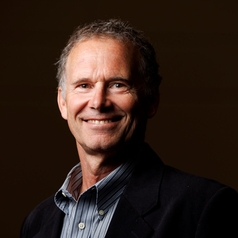
John Sommers-Flanagan
Clinical Psychologist and Professor of Counseling, University of Montana
John Sommers-Flanagan is a professor of counselor education at the University of Montana and author or coauthor of over 60 professional publications, nine books, and numerous video trainings with Psychotherapy.net and Alexander Street Press. Some of his books, co-written with his wife Rita, include Tough Kids, Cool Counseling, (2nd ed., American Counseling Association, 2007), How to Listen so Parents will Talk and Talk so Parents will Listen (John Wiley & Sons, 2011), Clinical Interviewing (6th ed., Wiley, 2017), and Counseling and Psychotherapy Theories in Context and Practice (3rd ed., Wiley, 2018). John is a sought out keynote speaker and professional workshop trainer in the areas of (a) counseling youth, (b) working with parents, and (c) suicide assessment. He has published many newspaper columns, Op-Ed pieces, and a recent article in Slate Magazine. His work has been intermittently featured in Counseling Today, the ASCA School Counselor magazines. John’s resource and opinion blog at johnsommersflanagan.com receives approximately 12,000 hits per month. He is also co-host of the national Practically Perfect Parenting Podcast. In his wild and precious spare time, John loves to run (slowly), dance (poorly), laugh (loudly) and produce home-made family music videos.
Less ![]()
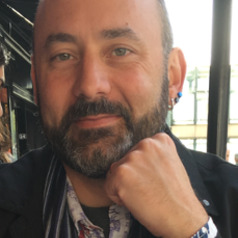
John Spencer
Professor in Psychology, University of East Anglia
John P. Spencer is a Professor of Psychology at the University of East Anglia in Norwich, UK. Prior to arriving in the UK, he was a Professor of Psychology at the University of Iowa and served as the founding Director of the Delta Center (Development and Learning from Theory to Application). He received a Sc.B. with Honors from Brown University in 1991 and a Ph.D. in Experimental Psychology from Indiana University in 1998.
Prof. Spencer is the recipient of the Irving J. Saltzman and the J.R. Kantor Graduate Awards from Indiana University, the 2003 Early Research Contributions Award from the Society for Research in Child Development, and the 2006 Robert L. Fantz Memorial Award from the American Psychological Foundation.
His research examines the development of visuo-spatial cognition, word learning, working memory, attention, and executive function with an emphasis on dynamical systems accounts of cognition and action. He has had continuous funding from the US National Institutes of Health and the US National Science Foundation since 2001 and has been a fellow of the American Psychological Association since 2007. He is currently leading an initiative on infant brain health in India funded by the Bill & Melinda Gates Foundation, as well as the UEA Longitudinal Brain Study funded by the US National Institutes of Health. For more information, see https://orcid.org/0000-0002-7320-144X.
Less ![]()
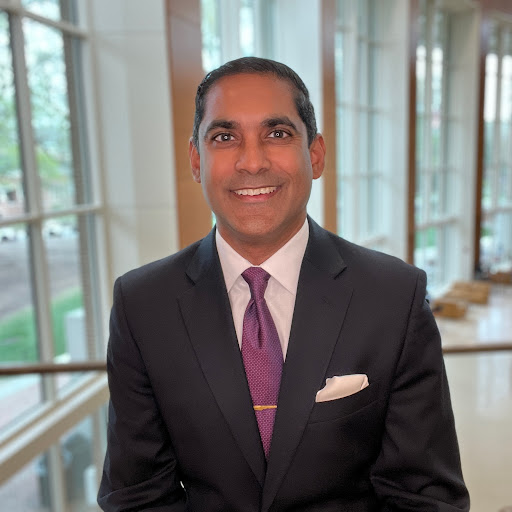
John Sumanth
James Farr Fellow & Associate Professor of Management, Wake Forest University
Less ![]()
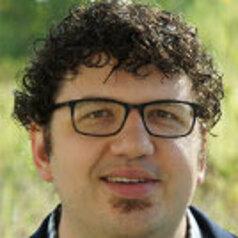
John Swierk
Assistant Professor, Chemistry, Binghamton University, State University of New York
The Swierk group is broadly interested in understanding and controlling radical reactions initiated by single electron transfer, most often via photo- or electrochemistry. Use of spectroscopic and electroanalytical methods is central to much of the research in the group.
One major area of emphasis within the group deals with understanding photoredox reactions. This class of reactions is transforming modern synthetic chemistry by substituting hard-to-handle, expensive and toxic reagents (e.g., HSnBu3) with short-lived excited states that can themselves be potent oxidants or reductants. Challenging bond-forming reactions can be accessed with this chemistry and, often, a variety of functional groups can be tolerated. Despite the promise of photoredox methods, a mechanistic understanding is lacking. Using a variety of experimental approaches and kinetic modeling, the Swierk group seeks to completely characterize photoredox catalytic cycles and identify the kinetically limiting steps, with an eye towards informing the design of new reactions.
A second area of emphasis deals with electrosynthetic reactions and seeks to understand the role of electrode materials and double-layer structure on novel, bond-forming reactions initiated electrochemically. Systems of interest range from the desulfurization of fuel oils to small molecules for pharmaceutical applications. Standard electrochemical methods (e.g., CV, LSV, impedance) are partnered with the development of new spectroelectrochemical methods.
There is also an NIH-funded effort in the lab focused on the safety and photochemistry of tattoo inks. Despite the popularity of tattoos and the billions of dollars spent every year on laser tattoo removal, we do not understand how tattoo inks transform under illumination and what risks they may pose to human health. The Swierk group utilizes a transdisciplinary approach that draws from analytical chemistry, materials science and cell biology to address the simple question, "How do tattoos fade?"
In addition to the major project areas described above, there is also work in the group on the synthesis of carborane transition metal complexes for photophysical and catalytic applications, deep eutectic solvents for organic reactions, and photoelectrochemical methods for initiating radical reaction mechanisms.
Less ![]()
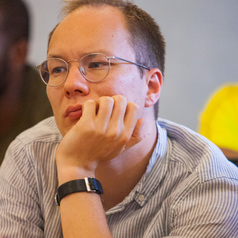
John Szabo
Fellow, Centre for Economic and Regional Studies & Assistant Lecturer, Eötvös Loránd University
John Szabo is a Fellow at the Institute of World Economics, Centre for Economic and Regional Studies as well as an Assistant Lecturer at the Department of Eötvös Loránd University International Relations and European Studies, Eötvös Loránd University. His research focuses on the energy-society nexus, especially in the context of the energy transition.
Less ![]()
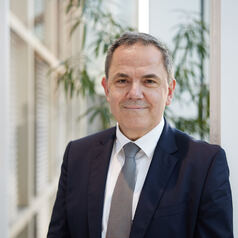
John Tasioulas
Professor of Ethics and Legal Philosophy; Director of the Institute for Ethics in AI, University of Oxford
John Tasioulas is Professor of Ethics and Legal Philosophy at the Faculty of Philosophy, University of Oxford, and inaugural Director of the Institute for Ethics in AI. He is also a Senior Research Fellow at Balliol College, Oxford. He was born in Australia, his parents having emigrated from Greece in the early 1960s. He received degrees in philosophy and law from the University of Melbourne and studied as a Rhodes Scholar at the University of Oxford where he completed a D.Phil. He was previously a Reader in Moral and Legal Philosophy at the University of Oxford and a Fellow of Corpus Christi College, Oxford (1998-2010), Quain Professor of Jurisprudence in the Faculty of Laws, University College London (2011-14), and inaugural Yeoh Professor of Politics, Philosophy and Law and Director of the Yeoh Tiong Lay Centre for Politics, Philosophy, and Law at the Dickson Poon School of Law, King's College London (2014-2020). He has held visiting positions at the Australian National University, the University of Chicago, Harvard University, and the University of Melbourne. Among other roles, he has acted as a consultant to the World Bank and is a member of the International Advisory Board, Panel for the Future of Science and Technology (STOA), European Parliament and the the Greek Prime MInister's Advisory Committee on Artificial Intelligence. In collaboration with Professor Hélène Landemore (Yale University) he is currently pursuing a project developing a humanistic ethics of AI funded by Schmidt Futures' AI2050 Program.
Less ![]()
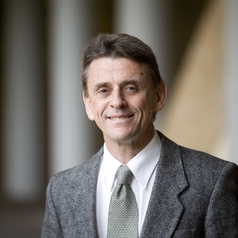
John Taylor
Professor C John Taylor is Head of the Australian School of Taxation and Business Law (Atax) in the UNSW Australia, Business School. He received a BA, an LL B and an LL M(Hons) from the University of Sydney and a Grad Cert in Higher Education from UNSW. Professor Taylor’s main areas of research have been: capital gains tax; corporate – shareholder taxation; taxation treaties; and tax simplification. He has been a contributing author to all editions of Understanding Taxation Law (Lexis Nexis, 2002, 2004, 2009, 2010, 2011, 2012, 2013, 2014 and 2015). The journals he has published in include: Melbourne University Law Review, British Tax Review, Canadian Tax Journal, Bulletin For International Fiscal Documentation, Australian Tax Forum, E-Journal of Tax Research and Australian Tax Review. John was the Inaugural Honorary Research Fellow of the Taxation Institute of Australia and in that capacity was the principal author of Beyond 4100: A report on measures to combat rising compliance costs through reducing tax law complexity, Taxation Institute of Australia, 2006. From 2006 to 2007 John conducted contract research for the Commonwealth Department of the Treasury on anti avoidance provisions in the income tax. John has been a Visiting Professor/Visiting Scholar at Harvard University, The University of Cambridge, Leiden University, The International Bureau of Fiscal Documentation, The University of British Columbia, The University of Western Ontario and the Plunkett Centre For Co-operative Studies.
Less ![]()
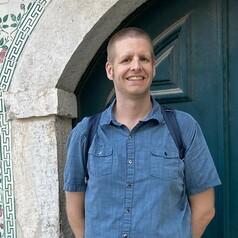
John Tobin
Scientist, National Radio Astronomy Observatory
I am an astronomer at the National Radio Astronomy Observatory in Charlottesville, Virginia. I study the formation of protostars, proto-planetary disks, and multiple star systems using radio telescopes like the Atacama Large Millimeter/submillimeter Array (ALMA) and the Very Large Array (VLA), and infrared telescopes like the James Webb Space Telescope. I also work on improving the procedures and algorithms for automated processing of radio astronomy data to help scientists use radio telescopes more efficiently.
Less ![]()
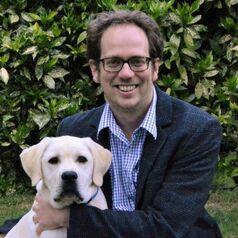
John Tulloch
Lecturer, University of Liverpool
Dr. John Tulloch is a lecturer and European Specialist in Veterinary Public Health, at the University of Liverpool. His body of work focuses on how animals impact human health and society, including veterinary work place injuries, zoonotic infections, and injuries caused by animals (such as dog bites and horse kicks).
Less ![]()
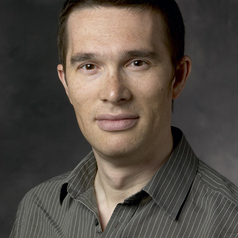
John Van Reenen
John Van Reenen is Professor of Economics at the London School of Economics and Director of the Centre of Economic Performance. He is the winner of the 2009 Yrjö Jahnsson Award (European equivalent to the Bates Clark Medal)
He has been a senior policy advisor to 10 Downing Street, the UK Secretary of State for Health and European Commission. He is a Research Fellow at the CEPR and NBER.
He received his BA from the University of Cambridge, his MSc from the London School of Economics and his PhD from University College London. Since 2003 he has been a member of the economics faculty of LSE, where he has taught industrial economics, labour economics and econometrics. He has been a Research Fellow at the Institute for Fiscal Studies, a visiting Professor at the University of California at Berkeley, at Princeton and Denning Visiting Professor of Global Business and Economics at Stanford.
Less ![]()
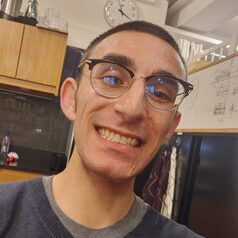
John Vandevert
Ph.D candidate, Uppsala University
* B.A. - Vocal Performance (Westminster Choir College)
* M.A - Musicology (University of Bristol) - "A Contemporary Analysis of “Musical Russianness” as evidenced in Husky’s Album “Hoshkhonog” (2020)"
* Ph.D. - Uppsala University - [Theme: Russian rap during the 1990s and the process of Post-Soviet identity creation]
Less ![]()
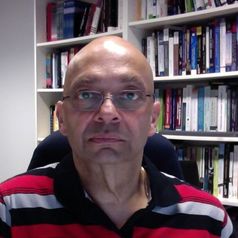
John Vaz
John Vaz, a senior executive from industry who joined Monash as an Academic in 2008 and is currently the program director for Banking and Finance at Monash. He i teaches Finance into masters programs and Corporate finance in the MBA program. He holds an MBA and a PhD in Finance. John regularly draws on his many years of experience in chief executive and senior management roles from start-ups to large enterprises in the Tech sector across many countries. John has done business and worked in many countries including Australia, SE Asia and the UK. John's research interests follow his PhD in Finance in how the macro-economy impacts financial markets, financial institutions and investor behavior.
Less ![]()
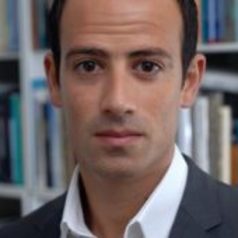
John Vella
John Vella is a Senior Research Fellow at the Oxford University Centre for Business Taxation (CBT) and a member of the Faculty of Law at Oxford.
John studied law at the University of Malta (BA and LLD) and the University of Cambridge (LLM and PhD). Prior to his current post he was Norton Rose Career Development Fellow in Company Law at the Faculty of Law at Oxford. John has given evidence twice before the House of Lords EU Sub-Commmittee A on Financial Transaction Taxes (November 2011 and March 2013) and before the Parliamentary Commission on Banking Standards on the role of tax in relation to banking standards and culture (January 2013).
He is the convenor of the Tax Section of the UK Society of Legal Scholars. He has been a Program Affiliate Scholar at New York University and has acted as a co-arbitrator in a tax dispute before the ICC International Court of Arbitration.
Less ![]()
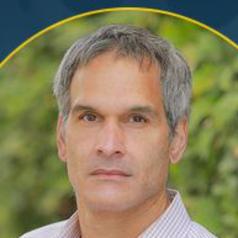
John Villasenor
Professor of Electrical Engineering, Law, Public Policy, and Management, University of California, Los Angeles
John Villasenor is a professor of electrical engineering, law, public policy, and management at UCLA, and is the faculty co-director of the UCLA Institute for Technology, Law, and Policy. He is also a nonresident senior fellow at the Brookings Institution and a member of the Council on Foreign Relations.
Professor Villasenor’s work addresses the intersection of technology, law, and policy, with a focus on topics including digital communications, artificial intelligence, cybersecurity, and privacy. He has published in many academic journals as well as in the Atlantic, Billboard, the Chronicle of Higher Education, Fast Company, Forbes, the Los Angeles Times, the New York Times, Scientific American, Slate, the Washington Post.
He has also provided congressional testimony on multiple occasions. Prior to joining the faculty at UCLA, Professor Villasenor was with the NASA Jet Propulsion Laboratory, where he developed methods of imaging the earth from space. He holds a B.S. degree from the University of Virginia, and an M.S. and Ph.D. from Stanford University.
Less ![]()
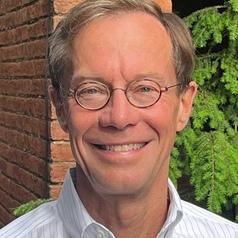
John Weigand
Professor of Architecture and Interior Design and Interim Dean, College of Creative Arts, Miami University
Educational Credentials
Master of Architecture, University of Illinois
BA of Environmental Design, Miami University
Teaching Experience
32 years at Miami University, including Interior Design Program Director, Chair, Associate Dean, Dean
Professional Experience/Licenses/Registration
Registered Architect in Ohio, Illinois + NCARB
12 years of full-time professional experience in Chicago
Less ![]()
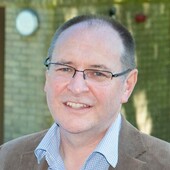
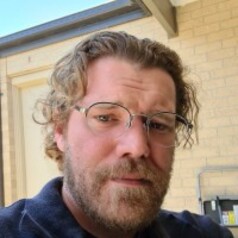
John Whitehead
Senior Lecturer in Criminology, Nottingham Trent University
John is a recent transplant to the UK and Nottingham Trent University, having previously lived and studied in Australia and South Africa. His PhD thesis, Restorative Justice in the South Pacific: Responding to Sexual Violence in Fiji, focused on customary justice practices, traditional leaders, and their role in responding to the above crimes. Alongside other publications on Pacific Indigenous justice, John has an interest in cybercrime and the Global South, and the challenges faced by incarcerated LGBTI+ populations.
Less ![]()

John Whitton
Professor of Environmental Social Science, University of Central Lancashire
John has a multi-disciplinary background in the Natural and Social Sciences with expertise in developing and applying novel social science research methods across these disciplines, in both academic and practice-based settings.
John is a Director of the UCLan Centre for Sustainable Transitions – a research centre that brings together Engineers, Social Scientists and Psychologists to work on the systemic challenges presented by the social impacts of Climate Change. He works extensively with farmers in the UK and Kenya, to support them in the transition to sustainable practices. He also works with young people in Kenyan agroforestry communities to support them into sustainable forms of employment – away from activities that focus on deforestation.
Less ![]()
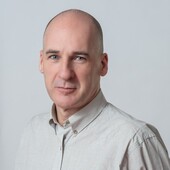
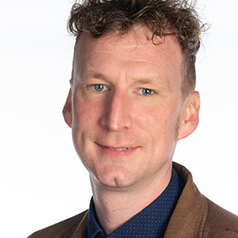
John Worthington
Senior Lecturer in Infection Biology, Lancaster University
The intestinal epithelium offers the first interaction between commensal bacteria, pathogens and our bodies’ largest immune system. Inappropriate immune responses drive inflammatory bowel disease (IBD) or excessive inflammation during infection. My research focuses on the epithelial enteroendocrine cells (EECs), which release peptide hormones in response to nutrients allowing their efficient digestion. EEC alterations are strongly associated with inflammation, yet the possibility of interactions between our gut’s endocrine and immune systems remains overlooked. Understanding the mechanistic cross-talk between enteroendocrine and immune cells will identify the immunoendocrine axis as a key feature of intestinal health which could be therapeutically targeted during disease.
Less ![]()
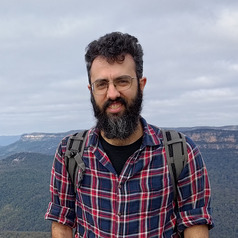
John (Eddie) La Marca
Senior Resarch Officer, Walter and Eliza Hall Institute
Dr John (Eddie) La Marca completed his PhD at La Trobe University, where he studied genes that control stem cell behaviour in Drosophila melanogaster. He then completed post-doctoral work at La Trobe University, researching the genes that regulate tumourigenesis, also using Drosophila melanogaster. He then moved to The Walter & Eliza Hall Institute, where his post-doctoral research explores blood cell and blood cancer development.
Less ![]()
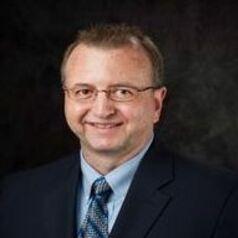
John A. Fliter
Associate Professor of Political Science, Kansas State University
John A. Fliter is an associate professor of political science at Kansas State University. He received his B.A. in political science from California State University, Northridge, and his M.A. and Ph.D. from the University of Maryland, College Park. He has written articles on freedom of speech, church-state relations, the jurisprudence of Justice David Souter, and prison reform litigation. His articles have appeared in The Journal of Political Science Education, Law and Society Review, Southeastern Political Review, Journal of Church and State, The Justice Professional, and the Free Speech Yearbook. His recent book, Child Labor in America: The Epic Legal Struggle to Protect Children, was published by the University Press of Kansas in May 2018. His other books include Fighting Foreclosure: The Blaisdell Case, the Contract Clause, and the Great Depression, co-authored with Derek Hoff, University Press of Kansas (2012), and Prisoners’ Rights: The Supreme Court and Evolving Standards of Decency, Greenwood Press (2001).
Fliter’s research interests include the Supreme Court and the New Deal, judicial policy making, civil rights and liberties, and law, politics and literature.
Professor Fliter received the 2010 K-State Presidential Teaching Award and he was named the 2013-14 Coffman University Distinguished Teaching Scholar. He teaches courses on U.S. politics, the judicial process, administrative law, constitutional law, civil rights and liberties, and law, politics and literature. Fliter serves as co-advisor to the Model UN Team. He is a military history buff, an avid fan of K-State sports, and a long-suffering Cleveland Indians/Guardians fan.
Less ![]()
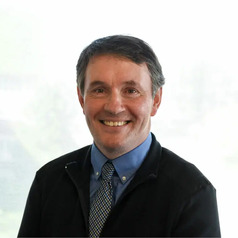
John A. Lucey
Professor of Food Science, University of Wisconsin-Madison
John has a Ph.D in Food Science and over 20 years of research experience. He previously worked in Ireland, the Netherlands and New Zealand. As CDR Director he provides leadership to CDR staff to help CDR move forward and live up to its reputation as a world-class research center focused on applications, outreach and education. He is also a professor in the Food Science department and conducts research on the functionality of dairy foods. He has published more than 130 peer-reviewed articles and 20 book chapters.
Less ![]()
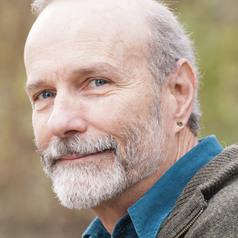
John Allan Webb
Associate professor, La Trobe University
John Webb specialises in groundwater and contaminated site management, with on-going research projects on improving treatment procedures for acid mine drainage, and on the influence of climate and land-use change on groundwater. He also works on geomorphology, particularly karst landscapes and neotectonism, and has utilised his geological background in a variety of archaeological projects.
Less ![]()
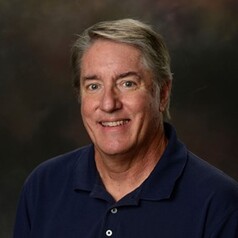
John C. Morris
Professor of Political Science, Auburn University
John C. Morris is a professor in the Department of Political Science at Auburn University. Dr. Morris teaches courses in collaboration, public policy, organization theory, privatization, and policy evaluation in both the Master of Public Administration program and PhD in Public Administration and Public Policy programs. He has won numerous teaching awards over the course of his career. He also serves on the editorial boards of two journals, has served on the program committee for three national conferences, and is a member of several professional organizations and honoraries.
His research interests include collaboration, public-private partnerships, water policy, federalism, and organization theory. He has published in journals such as Public Administration Review, Policy Studies Journal, the Journal of Politics, the American Review of Public Administration, Publius, Voluntas, Politics and Policy, State and Local Government Review, and Environmental Politics, among others. To date he has published twelve books, over 120 scholarly articles and book chapters, and delivered more than one hundred conference papers.
Less ![]()
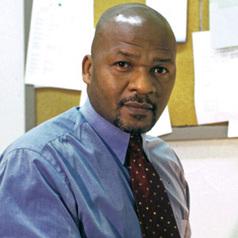
John C. Watson
Associate Professor of Journalism, American University
John C. Watson is an associate professor tenured in the Journalism Division. He brings a combination of professional experience and scholarly credentials to the classroom. A journalist for 21 years, he has a law degree and a Ph.D. His research on media law and journalism ethics has been has been presented at scholarly conferences and published in law reviews and refereed scholarly journals. He is the author of Journalism Ethics by Court Decree. He has conducted studies that question the ethical propriety of publishing police composite sketches of crime suspects, and weighs the merits of licensing journalists.
Less ![]()
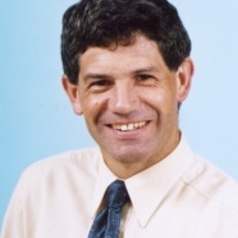
John Douglas Dunbar
Clinical Senior Lecturer in Surgical Science, University of Otago
I am an orthopaedic surgeon providing services in Maori Hill, Dunedin, New Zealand.
Less ![]()
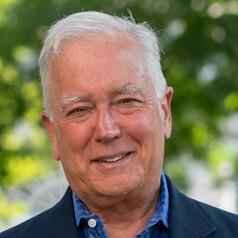
John E. Jones III
President, Dickinson College
Jones retired as chief judge of the U.S. Middle District Court of Pennsylvania. He was appointed to the federal bench by President George W. Bush and unanimously confirmed by the United States Senate on July 30, 2002.
Jones has presided over a number of high-profile cases. In 2003, Jones struck down portions of Shippensburg University’s speech code on the basis that it violated the First Amendment’s free speech guarantee. In that same year, Jones ruled in a decision later affirmed by the United States Supreme Court, that the U.S. Department of Agriculture’s statute assessing milk producers in order to fund advertising, including the Milk Mustache/got milk® campaign, did not infringe the free speech rights of the producers.
In 2005, Jones presided over the landmark case of Kitzmiller v. Dover School District, after which he held that it was unconstitutional to teach intelligent design within a public school science curriculum. In 2006, he ruled that the Commonwealth of Pennsylvania’s ballot access procedures for minor political parties did not violate the Constitution. In 2014, Jones resolved the matter of Whitewood v. Wolf by striking down as unconstitutional Pennsylvania’s ban on same-sex marriage.
Before becoming a federal judge, Jones was a lawyer in private practice in his hometown of Pottsville, Pa.
In November 1994, then Pennsylvania Governor-elect Tom Ridge named Jones as a co-chair of his transition team. In May 1995, Ridge nominated Jones to serve as chairman of the Pennsylvania Liquor Control Board.
Jones has received numerous accolades during his career. He received the Outstanding Alumni Award from the Dickinson School of Law, as well as an honorary doctorate in law and public policy from Dickinson College, where he was recognized as one of the 25 most influential graduates in the college’s history. In 2009, the college’s faculty voted to induct Jones into its Phi Beta Kappa chapter.
In 2006, Jones was named by Time magazine as one of its Time 100 most influential people in the world. He also received a Rave Award for Policy from Wired magazine and was the recipient of the first John Marshall Judicial Independence Award, given by the Pennsylvania Bar Association. In 2009, he was the recipient of the Geological Society of America’s President’s Medal, and in the same year he was inducted into the George Washington Spirit Society.
In 2013, Chief Justice John Roberts appointed Jones to the Committee on Judicial Security, a standing committee of the Judicial Conference of the United States, and in 2018 Roberts appointed Jones to the Committee on Space and Facilities.
Less ![]()
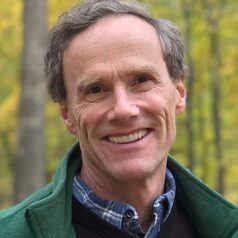
John Edward McCarthy
Professor of Mathematics, Arts & Sciences at Washington University in St. Louis
I am a mathematician, and work in the Mathematics and Statistics Department of Washington University in St. Louis. My primary interests are Operator Theory, One and Several Complex variables, and their interaction.
Less ![]()
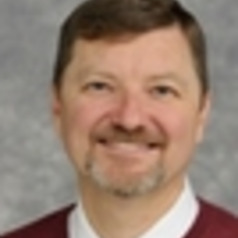
John F. Clark
Professor Politics and International Relations, Florida International University
Professor Clark specializes in the state-society relations of African polities and the international relations of sub-Saharan Africa. He is co-editor of Political Reform in Francophone Africa (1997, with David Gardinier), editor of The African Stakes of the Congo War (2002), author of The Failure of Democracy in the Republic of Congo (2008), and co-author of the Historical Dictionary of Congo (2012, with Samuel Decalo) and Africa’s International Relations (2018, with Beth Whitaker). He has also published over fifty articles and book chapters, including articles in / African Affairs/, the Journal of Democracy,/ the Journal of Modern African Studies/, Comparative Studies in Society and History, African Security, and the Africa Spectrum. During the 1999-2000 academic year he was a Fulbright lecturer and research scholar at Makerere University in Kampala, Uganda, and he made numerous research trips to the Republic of Congo and the Democratic Republic of Congo between 1990 and 2012. In the summer of 2014, Professor Clark was a Fulbright Specialist consultant at the Mbarara University of Science and Technology, where he was also Visiting Professor. He was awarded, with three collaborators, a grant by the American Political Science Association to organize a two-week workshop on Conflict and Political Violence in Nairobi, Kenya, in July 2015. He is currently studying the foreign policies of African states. Professor Clark served 6 years (2002-2008) as Chairperson of the International Relations Department at FIU and another 4 years (2016-2020) as the Chairperson of the Politics and International Relations Department at FIU.
Less ![]()

John F. Tooker
Professor of Entomology and Extension Specialist, Penn State
We study relationships among plants, insect herbivores, and natural enemies to understand factors that regulate populations of herbivorous insects. We are interested in both plant- and natural-enemy-mediated factors and how they influence insect behavior, community composition, and herbivore mortality. Our long-term goal is to exploit the ecology/biology of our study organisms to provide strategies and tactics for more sustainable insect pest management.
Education
B.S. - Bates College, 1992
M.S. - University of Illinois at Urbana-Champaign, 1999
Ph.D. - University of Illinois at Urbana-Champaign, 2003
Less ![]()
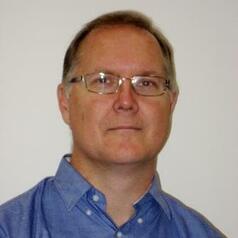
John G Conran
Senior Lecturer in Evolutionary Biology, University of Adelaide
My undergraduate degree was broad-based, including subjects from the Agriculture and Science Faculties, with majors in Entomology and Botany. In Honours, I studied systematics and population variation in Banksia oblongifolia (Proteaceae) and my PhD studied the evolution and ecology of the net-veined petaloid monocots growing in the rainforests at Springbrook, SE Qld.
Less ![]()
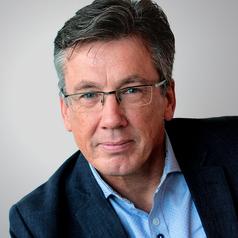
John J Oliver
Professor of Strategic Media Management, Bournemouth University
Prof. John Oliver is an experienced academic who has published in international media and business journals. He has a successful track record of delivering world class instrumental impact from his research. Most recently his research on the impact of crisis events on the levels of innovation and corporate financial performance influenced the UK Govts new ‘Build Back Better: our plan for growth’ and the Business, Energy and Industrial Strategy Committee's new 'Innovation Strategy’ which aims to incorporate long-term strategies that centre on business investment that drives innovation in the UK economy.
His research has made a demonstrable impact on UK Communications policy and regulatory decisions relating to Sky Plc and influenced the public policy debate on internet regulation. His research into ‘strategic organisational transformation’ created financial benefits for several world class management consultancies which resulted in direct economic impacts in terms of new jobs and multi-million pound investments made by FTSE 100 firms. The reach and significance of his Scenario Planning research has also extended outside the UK with a number of Middle East Government agencies changing their strategy practices, operational structures and capacity building capabilities in strategic communications.
He is an advisory board member for the Horizon Scanning & Foresight Committee (UK Parliament), and member of the Centre of Excellence and Profession in the Enterprise Portfolio Management Office (UK Parliament). He is a former President of the European Media Management Association, Academic Fellow at the Parliamentary Office of Science & Technology, and former Visiting Fellow at the University of Oxford.
Prof. Oliver has also held senior leadership roles as: Deputy Dean (Business School), Head of Research; Head of International Development (Faculty of Media & Communications); Professoriate representative to the Academic Standards Committee. As an executive trainer he has delivered executive education to clients like the BBC, ITV, Virgin Media, Sky, UKTV, Channel 4, FremantleMedia and Bell Pottinger.
Less ![]()
- Market Data




















